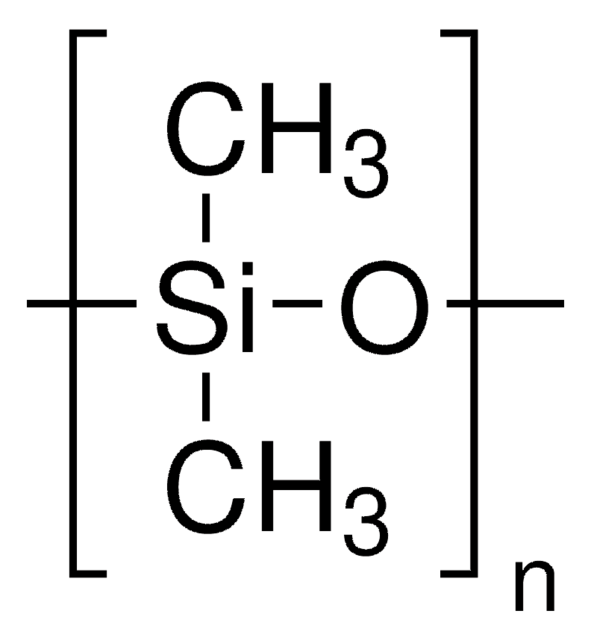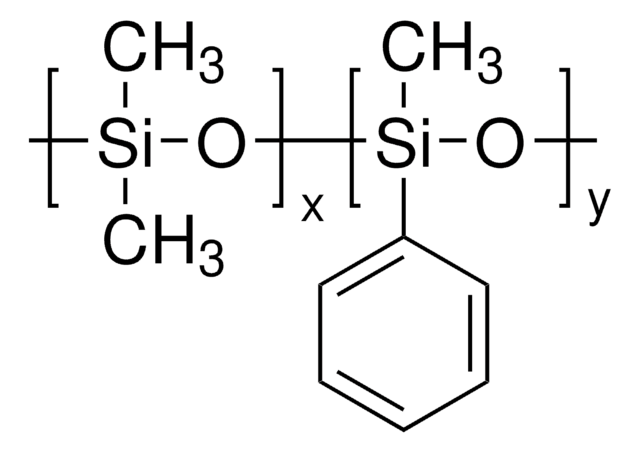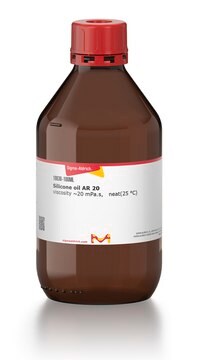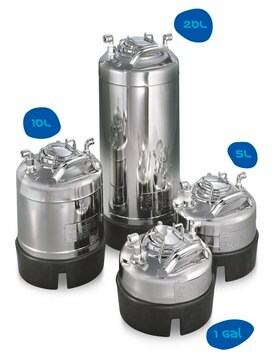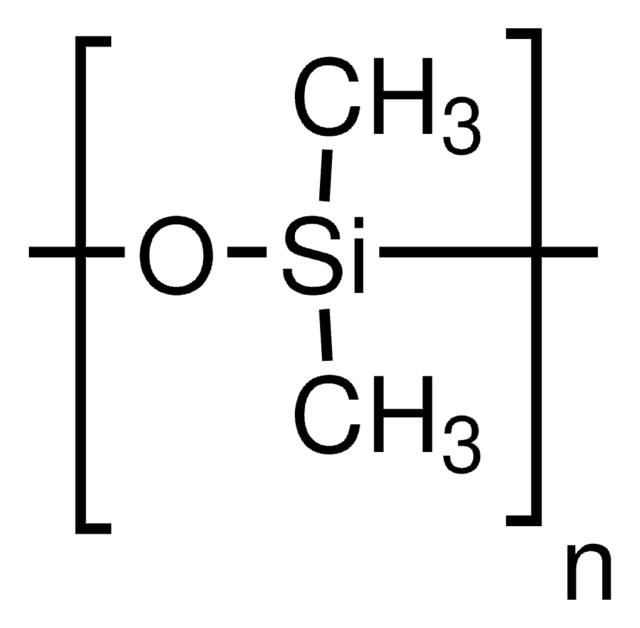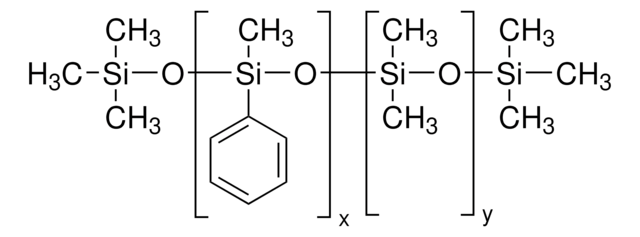146153
Silicone oil
for melting point and boiling point apparatuses
Iniciar sesiónpara Ver la Fijación de precios por contrato y de la organización
About This Item
Fórmula lineal:
[-Si(CH3)2O-]n
Número de CAS:
MDL number:
UNSPSC Code:
41100000
NACRES:
NB.77
Productos recomendados
vapor density
>1 (vs air)
vapor pressure
<5 mmHg ( 25 °C)
5 mmHg ( 20 °C)
type
for melting point and boiling point apparatuses
parameter
−40-350 °F temp. range (−40-175 °C)
refractive index
n20/D 1.403 (lit.)
viscosity
45.0-55.0(25 °C)
bp
>140 °C/0.002 mmHg (lit.)
density
0.963 g/mL at 25 °C
¿Está buscando productos similares? Visita Guía de comparación de productos
Application
Silicone oil has been used:
- for melting-point and boiling-point apparatus
- in membrane contactors to impregnate fibers
- on rheometer samples (chicken skin and bovine gelatin) to prevent evaporation during heating using temperature sweeps and frequency sweeps
Biochem/physiol Actions
Silicone oil is suitable for use in under-oil screenings of proteins.
Features and Benefits
- High viscosity
- Low water solubility
- Low vapor pressure
Storage Class
10 - Combustible liquids
wgk_germany
WGK 1
flash_point_f
214.0 °F - closed cup
flash_point_c
101.1 °C - closed cup
ppe
Eyeshields, Gloves
Elija entre una de las versiones más recientes:
¿Ya tiene este producto?
Encuentre la documentación para los productos que ha comprado recientemente en la Biblioteca de documentos.
Los clientes también vieron
Sara Sanders et al.
PloS one, 13(5), e0197638-e0197638 (2018-05-18)
The in vivo microenvironment of bacterial pathogens is often characterized by nutrient limitation. Consequently, conventional rich in vitro culture conditions used widely to evaluate antibacterial agents are often poorly predictive of in vivo activity, especially for agents targeting metabolic pathways.
Tindaro Ioppolo et al.
Journal of visualized experiments : JoVE, (71)(71), e50199-e50199 (2013-02-15)
Optical modes of dielectric micro-cavities have received significant attention in recent years for their potential in a broad range of applications. The optical modes are frequently referred to as "whispering gallery modes" (WGM) or "morphology dependent resonances" (MDR) and exhibit
Benjamin R Schudel et al.
Lab on a chip, 13(5), 811-817 (2013-01-31)
RNA interference (RNAi) is a powerful tool for functional genomics with the capacity to comprehensively analyze host-pathogen interactions. High-throughput RNAi screening is used to systematically perturb cellular pathways and discover therapeutic targets, but the method can be tedious and requires
Ryan G Porter et al.
Otology & neurotology : official publication of the American Otological Society, American Neurotology Society [and] European Academy of Otology and Neurotology, 34(2), 304-310 (2013-02-28)
To describe a successful paradigm for the treatment of large acoustic neuromas (vestibular schwannomas). Retrospective case review. Tertiary referral center. The charts of 2,875 acoustic neuroma patients at Michigan Ear Institute were reviewed to identify 153 patients who underwent surgical
Zhentian Shi et al.
Journal of the Air & Waste Management Association (1995), 63(1), 80-86 (2013-03-02)
The use of surfactants during soil washing process can create massive foam, which has a negative impact on the effective use of equipment. A series of tests was conducted to evaluate the defoaming performance of three defoamers and to investigate
Nuestro equipo de científicos tiene experiencia en todas las áreas de investigación: Ciencias de la vida, Ciencia de los materiales, Síntesis química, Cromatografía, Analítica y muchas otras.
Póngase en contacto con el Servicio técnico